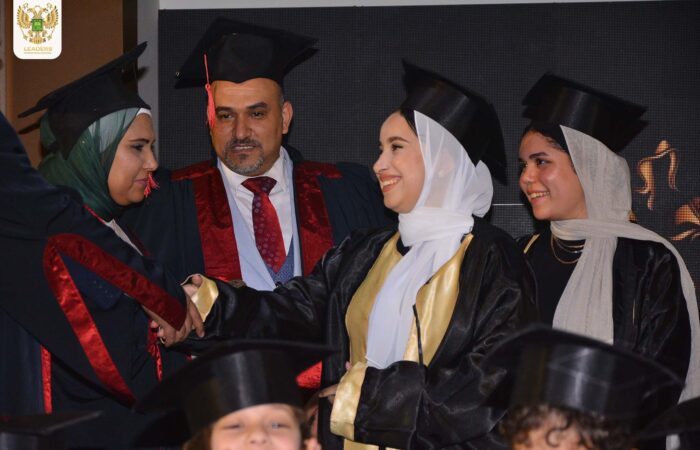Leaders International Schools- The American Division
is the only school in Middle Delta accredited by Cognia.
Cognia is a non-profit organization that provides accreditation services to schools, districts, and other educational institutions around the world.
Cognia accreditation is important because it assures the quality of an educational institution or program. The Cognia Performance Standards are based on research and best practices in education, and they are designed to ensure that schools are providing a high-quality education to their students.
Some of the specific areas that Cognia accreditation assesses include:
Therefore, if you are considering attending our school that is accredited by Cognia, you can be confident that you are choosing an institution that is committed to providing a high-quality education.
The objectives of Leaders Language School American Division’s curriculum is to educate and develop students who will meet society’s future needs through:
Children are taught skill-based learning (HOW to think, not WHAT to think). Positive self- esteem and work habits are encouraged through structured, well-planned, and organized activities. We also foster independent thinking skills through hands-on practical activities and field trips.
The Leaders Language School American Division uses The Common Core State Standards for English Language Arts in Kindergarten through Grade 12. Language Arts’ expectations are organized into five strands, which are: Reading Literature, Reading Information Text, Speaking and Listening, Language (grammar and spelling), and Writing. The program in all grades is designed to develop a range of essential skills in reading, writing, and oral language. This includes a solid foundation in spelling and grammar; the appreciation of literature and the ability to respond to it; and skills in using oral language accurately and effectively. Students will also learn to use critical and analytical skills to respond to communications and media and will develop skills in using technology to search for and share information. A variety of instructional methods and assessments are used to aid each child’s language development.
The mathematics program is based on a progressive spiraling approach promoting mathematical growth and awareness through daily experiences. Its goal is to develop mathematical insight and reasoning in each student. Students are exposed to repeated real-life problems and situations, and are encouraged to develop various solving strategies. Math usage is found throughout the day in all subject areas. Data collection and analysis, mental math, estimation and probability help to clarify and deepen student understanding of key mathematical ideas. Students are encouraged to work collaboratively and individually in finding more than one way to use math on a daily basis.
The science curriculum focuses on three areas of study: Life Science; Earth Science; and Physical Science. Students are encouraged to learn concepts through practical observation and experimentation. Hands-on activities, group and individual research, and field trips aid students in applying scientific knowledge to real-life experiences.
The Social Studies program emphasizes an understanding of community development, world geography, and world history. Students learn how location and geography help to create and form a culture; how individuals work together for the benefit of a community; and how actions affect the outcome and future growth of a community. Regional historical events reflect upon a culture’s growth and world-wide influence.
French / German :
Students in grades K-12 are to choose to study either French or German. Students are taught the appropriate communicative language skills and aspects of French / German culture.
Arabic:
It is taught for grades K-12. Students study the various aspects of the Arabic language, concentrating on reading, writing, and listening skills. Our Arabic curriculum uses the Egyptian Ministry of Education and includes religious study.
At Leaders Language School, we believe that Technology is a fundamental component of learning; hence, it is integrated within all curriculum areas. The computer curriculum has been developed to provide students with opportunities to acquire computer skills and knowledge so they can function effectively in today’s technological society. Students will develop basic computer skills through keyboarding, word processing, drawing and graphic programs, and the usage of spreadsheets and database. Computers provide another medium to assist students with different learning styles. Internet access allows students to acquire up-to-date information and aids in research projects. Computer access and programs are used to introduce, develop, and illuminate curriculum concepts.
Art classes allow students to express themselves through the use of various mediums, including two and three-dimensional artworks. Students learn how to use color, texture, shapes, application techniques, and different materials to study the effects and usage of art in all cultures. The development of aesthetic perception, awareness, and creativity enhances student self-expression and an understanding of visual and functional art.
Our music program provides each student with an opportunity to develop his/her interest and ability in a variety of musical experiences. Students are given the opportunity to play various instruments and learn musical techniques of tone, pitch, volume, rhythm, tempo, duration, and meter.
Our P.E. program provides a meaningful physical education program that includes a safe, health promoting environment. Students will develop an understanding of physical fitness, health, and well- being and the factors that contribute to them. As well as, the basic movement skills they require to participate in physical activities throughout their lives.
– Malcolm X

Featured Gallery